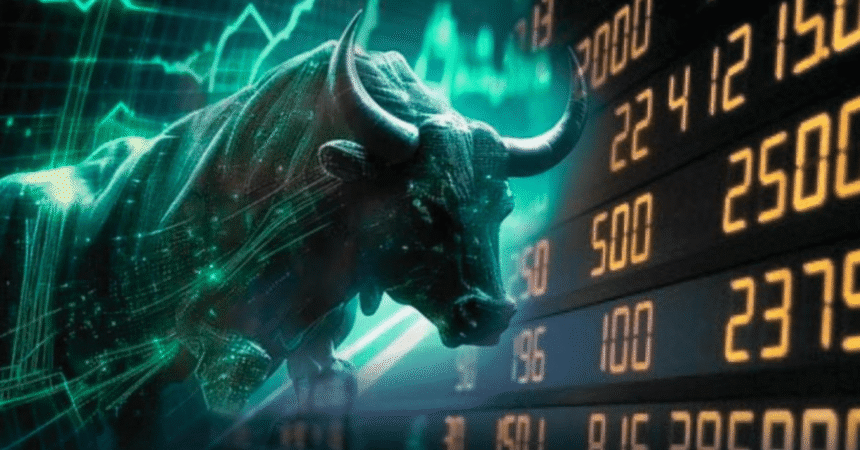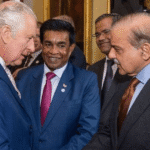In a significant turn of events, the Pakistan Stock Exchange (PSX) has witnessed a remarkable rebound, with its benchmark KSE-100 Index surpassing the 80,000-point mark after a challenging two-month period of volatility. Closing at an impressive 80,300 points after a surge of 800 points, this resurgence reflects renewed investor confidence in the market, driven by recent political stabilization and the anticipated deal with the International Monetary Fund (IMF).
Context of the Market Surge
Recent Volatility
The KSE-100 Index had faced significant turbulence leading up to this recovery, marked by fluctuations that kept investors on edge. The political unrest and economic uncertainties had cast a shadow over the market, causing many to hesitate in their investment decisions. Concerns regarding inflation, currency depreciation, and external debt obligations compounded the challenges, leading to a cautious outlook among stakeholders.
The Role of Political Stability
The recent stabilization of Pakistan’s political landscape has been pivotal in restoring investor confidence. Following a period of political upheaval, the current government has taken steps to create a more predictable and stable environment. Political stability is crucial for fostering economic growth, as it encourages domestic and foreign investors to engage in the market without the fear of abrupt changes in policy or governance.
A clear indication of political stability has been the government’s ability to communicate effectively with various stakeholders and reassure them of its commitment to economic reform. This assurance has played a significant role in shifting the investor sentiment from uncertainty to optimism.
Anticipation of the IMF Deal
One of the most influential factors behind the KSE-100 Index’s recent performance has been the anticipation of a deal with the IMF. The IMF plays a critical role in providing financial assistance to countries facing economic challenges. For Pakistan, a successful agreement is viewed as a vital step toward restoring macroeconomic stability and confidence in international markets.
The expected deal is seen not only as a source of immediate financial relief but also as a catalyst for long-term economic reform. By securing support from the IMF, Pakistan can benefit from policy guidance, funding, and improved credibility in the eyes of other international investors and financial institutions.
Contributing Factors to the Stock Market Resurgence
Economic Reforms and Policy Adjustments
In tandem with political stabilization and the anticipated IMF deal, recent policy adjustments aimed at economic reform have contributed to the stock market’s positive trajectory. The government has initiated several measures intended to stimulate growth, including:
- Tax Reforms: Streamlining tax regulations to improve revenue collection and ease the burden on businesses.
- Investment Incentives: Offering incentives for foreign direct investment to attract capital inflows.
- Regulatory Changes: Simplifying bureaucratic processes to encourage entrepreneurship and facilitate business operations.
These reforms signal a commitment to creating a more conducive business environment, which is critical for encouraging investment and driving economic growth.
Investor Sentiment and Market Activity
The overall investor sentiment has seen a notable uplift due to the convergence of these favorable factors. Increased trading activity on the stock exchange reflects this renewed confidence. Investors are eager to capitalize on the potential for growth, leading to a surge in buying activity, particularly in sectors that are poised to benefit from the anticipated economic recovery.
Furthermore, positive news regarding corporate earnings and performance in key industries has bolstered investor confidence. As companies report better-than-expected results, the optimism surrounding the stock market is reinforced, attracting both domestic and international investors.
Global Economic Context
The global economic environment has also influenced the KSE-100 Index’s performance. As economies around the world recover from the impacts of the COVID-19 pandemic, emerging markets like Pakistan are gaining attention from investors looking for growth opportunities. As interest rates in developed markets rise, investors may seek higher returns in emerging economies, leading to increased capital inflows.
Implications of the Market Surge
Short-Term Optimism
The restoration of the 80,000-point level marks a significant achievement for the Pakistan Stock Exchange. It indicates a positive shift in the financial landscape, with investors expressing optimism about further growth in the coming months. Analysts suggest that the combination of political stability, IMF support, and proactive economic reforms creates a favorable environment for investment.
Short-term gains are expected to continue, driven by increased market activity and investor interest. However, it is essential to monitor market dynamics closely, as fluctuations are common in the stock market, and the current euphoria may face challenges.
Long-Term Considerations
While the current momentum is encouraging, analysts caution that the path forward will not be without challenges. Structural issues within Pakistan’s economy, such as inflationary pressures, trade deficits, and currency fluctuations, still pose risks to sustained growth.
Inflation and Cost of Living
Inflation remains a significant concern for Pakistan, impacting consumer spending and overall economic stability. Rising prices for essential goods and services can erode purchasing power, potentially dampening investor sentiment if not managed effectively. The government will need to address these inflationary pressures while implementing measures to ensure that economic growth translates into improved living standards for the population.
Trade Deficits and External Debt
Pakistan’s trade deficit and external debt obligations pose additional challenges. The country relies heavily on imports to meet domestic demand, leading to a trade imbalance that can strain foreign exchange reserves. Addressing the trade deficit through policies that promote local production and exports will be crucial for achieving long-term economic stability.
The Importance of Continuous Engagement
Ongoing engagement with stakeholders will be essential for the government to maintain the current positive momentum. Transparent communication, adherence to reform commitments, and collaboration with international partners will be critical in ensuring sustained investor confidence. By fostering an environment of trust and reliability, the government can encourage continued investment in the Pakistani market.
Monitoring Political Developments
While political stability has improved, the landscape can be unpredictable. The government must remain vigilant and proactive in addressing any emerging issues that could threaten stability. Maintaining a focus on governance, accountability, and public trust will be vital for sustaining the positive outlook.
Conclusion
The KSE-100 Index’s restoration of the 80,000-point mark is a noteworthy achievement for the Pakistan Stock Exchange and reflects a broader positive shift in the economic landscape. With renewed investor confidence stemming from political stability, the anticipated IMF agreement, and proactive policy measures, the outlook for the Pakistani stock market appears promising.
However, sustained efforts will be required to navigate the complexities of the economic environment and ensure that this momentum translates into long-term growth and stability. The path ahead will involve addressing ongoing challenges while capitalizing on the opportunities presented by a revitalized market and a commitment to reform.
In summary, the current resurgence of the KSE-100 Index not only highlights the resilience of the Pakistani economy but also underscores the importance of strategic governance and stakeholder engagement in fostering a robust financial ecosystem. As the market continues to evolve, it will be essential for all stakeholders to work collaboratively toward a prosperous future.
#KSE100 #PakistanStockExchange #IMFDeal #EconomicGrowth #InvestorConfidence #StockMarket #PakistanEconomy #PoliticalStability #MarketResurgence







